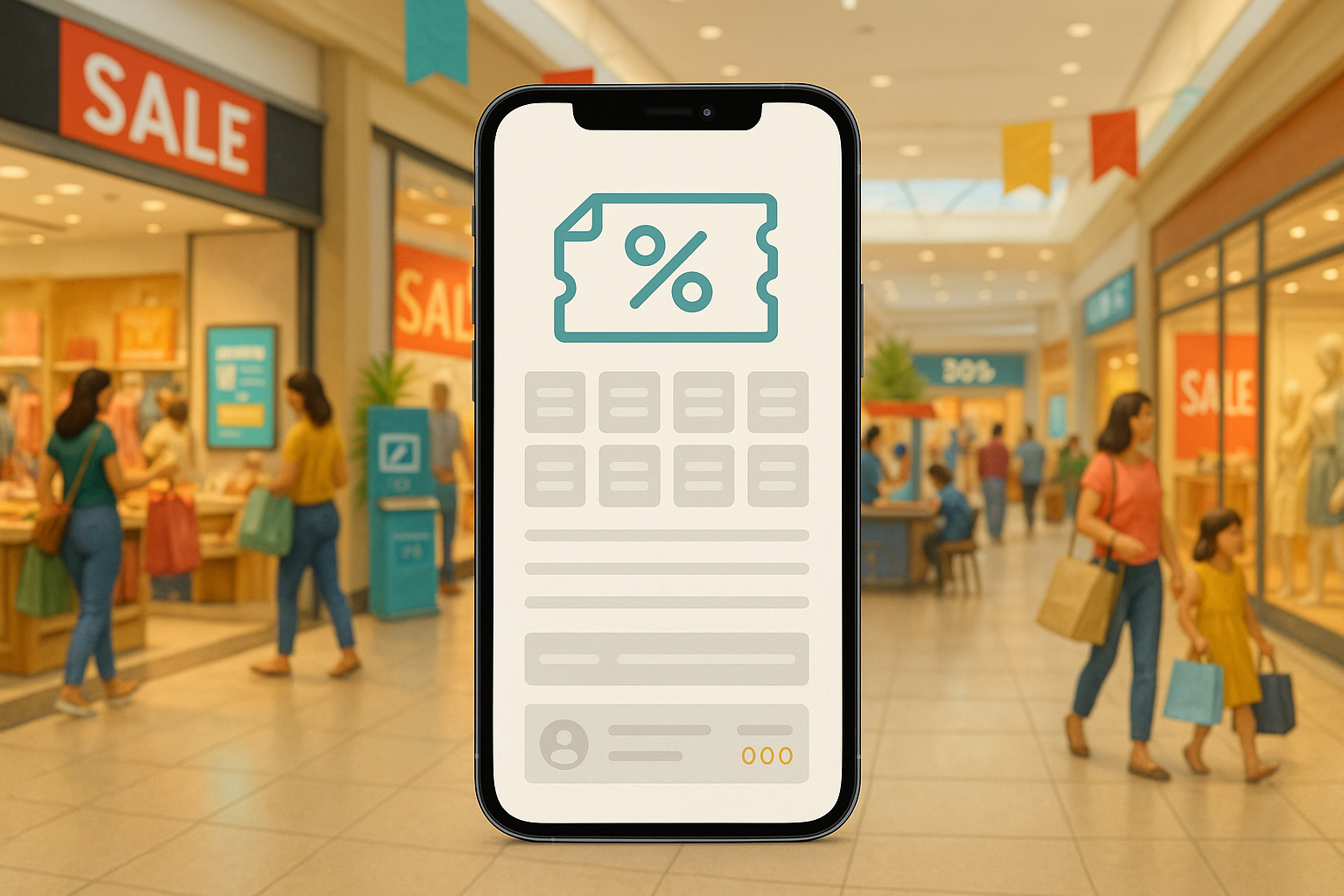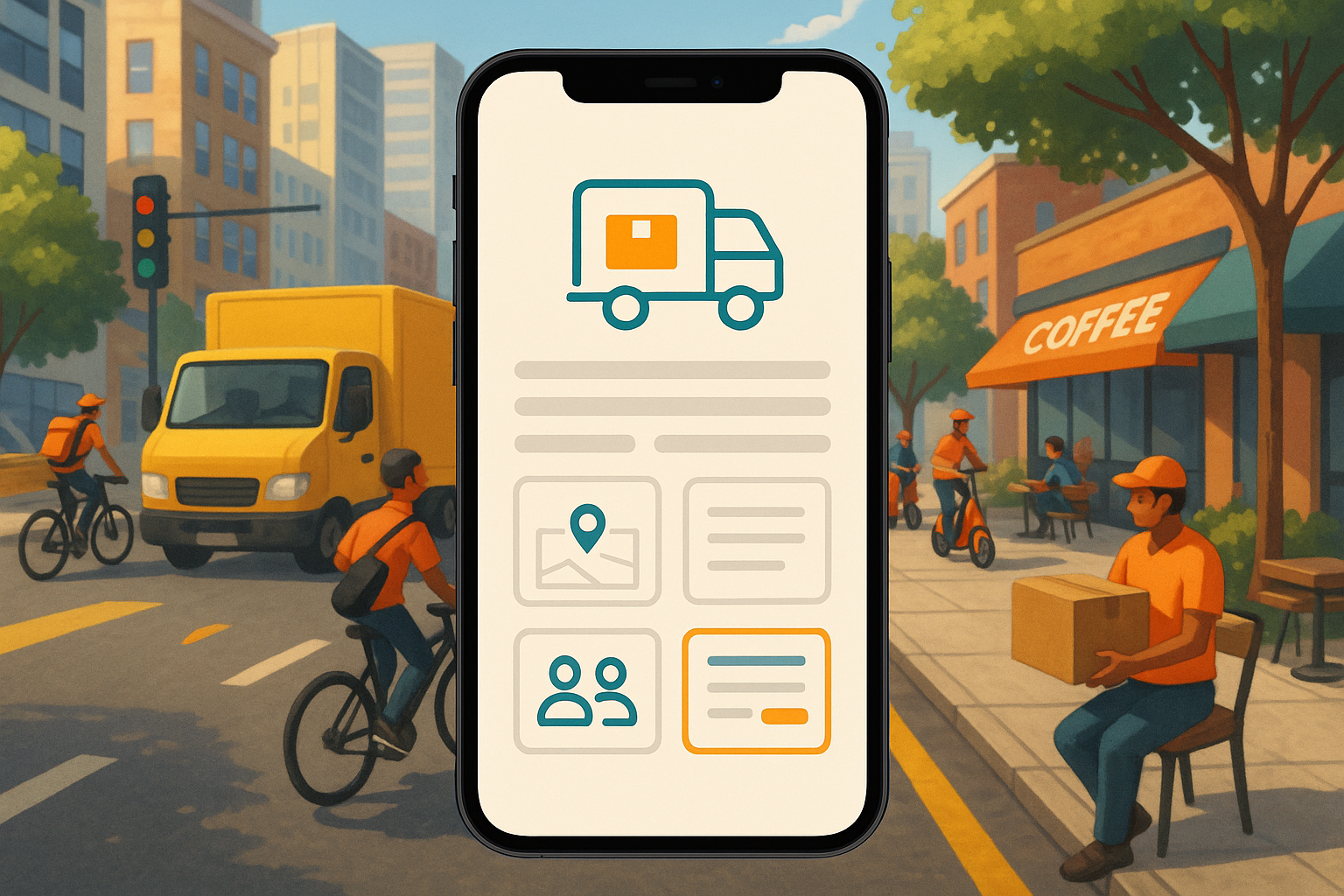Introduction
In today’s digitally-driven market, a corporate mobile app is no longer a luxury—it’s a fundamental tool for engaging customers, streamlining operations, and driving growth. However, the path from concept to a successful launch is fraught with challenges. Businesses often grapple with ballooning budgets, a scarcity of specialized talent, and complex technical decisions that can derail a project before it even starts. The choice between building in-house or outsourcing, selecting the right technology stack, and accurately forecasting costs can feel overwhelming.
This article serves as your comprehensive guide to corporate app development. We will demystify the process by exploring what a corporate app entails, dissecting the significant hurdles of in-house development, and detailing the different types of mobile applications available. We will also provide a transparent breakdown of development costs and introduce the industry’s leading development companies.
As a top US AI-powered app development firm, we at MetaCTO understand these challenges intimately. With over 20 years of experience and more than 120 successful projects, we specialize in transforming ambitious ideas into market-ready mobile applications. We don’t just build apps; we partner with you at every stage—from validation and design to growth and monetization—ensuring your project is not only launched but is positioned for long-term success. Let us show you how to build your app the right way, from day one.
What is a Corporate App?
A corporate app is a mobile application developed by or for a business to serve a specific strategic function. These applications are not merely digital novelties; they are powerful instruments designed to solve problems, create value, and enhance the relationship between a company and its stakeholders. The function of a corporate app can be broadly categorized into two areas: external-facing applications that engage customers and partners, and internal-facing applications that optimize business operations and empower employees.
Examples of successful corporate apps are abundant and varied, showcasing their versatility:
- E-commerce and Retail: Amazon’s mobile presence is a prime example of a web app that provides users with seamless access to their accounts and shopping carts across any device, promoting a customer-first ethos with ultimate flexibility. Shopify took a different route, using the React Native cross-platform framework to build its
Shop app, which shares 95% of its code between iOS and Android, dramatically increasing team productivity. - Productivity and Collaboration: Microsoft Teams, developed as a Progressive Web App (PWA), offers a dynamic platform for video conferencing and messaging that fully integrates with Office 365 products, enabling a seamless experience between desktop and mobile. Slack, a hybrid app built with the Electron framework, is used by over 150,000 organizations for internal communication and collaboration.
- Social Media and Content: Instagram, another powerful example of a hybrid app, was built using React Native to deliver the benefits of a native experience while maintaining the flexibility to run on various formats across phones, desktops, and tablets.
Fundamentally, these apps serve as well-placed marketing tools, allowing advertisers and third parties to reach targeted audiences through in-app advertising. By providing value and utility, corporate apps build a direct channel to users, fostering loyalty and creating new revenue opportunities.
Reasons It Is Difficult to Develop a Corporate App In-House
Embarking on in-house app development can seem like a way to maintain control and build institutional knowledge. However, the reality is often a journey filled with unforeseen obstacles, escalating costs, and significant risks that can jeopardize the entire project. Partnering with a specialized agency like MetaCTO can help you bypass these common pitfalls. Here are the primary difficulties businesses face when building a corporate app on their own.
Financial and Logistical Burdens
The financial commitment of building an in-house development team extends far beyond salaries. The true cost includes a wide array of direct and indirect expenses that can quickly spiral out of control.
- High Overhead Costs: An in-house team requires competitive salaries, comprehensive benefits packages, and continuous investment in employee training to keep their skills current. Beyond personnel, there are substantial infrastructure costs, including office space, high-performance equipment, and expensive software licenses.
- Expensive and Time-Consuming Recruitment: The process of finding, vetting, and hiring qualified developers is both costly and lengthy. It involves advertising positions, engaging recruiters, and dedicating significant internal man-hours to the search.
- The Onboarding Lag: Once a candidate is hired, the onboarding process can be extensive. It can take several months before a new developer is fully integrated into the team and contributing productively, creating a significant delay before development can even begin.
Talent Scarcity and Skill Gaps
In the competitive tech landscape, finding the right talent is one of the most significant challenges. The specific skills required for your project may not be readily available within your local talent pool.
- Limited Access to Specialists: Your project may require expertise in a niche technology or framework that your current team doesn’t possess. A lack of these specialized skills can negatively impact the quality and functionality of the final product.
- Recruitment Challenges: Convincing highly skilled developers to relocate for a position can involve additional costs and time. Furthermore, the right candidate may not be available when you need them, forcing project timelines to slip.
- Inadequate Management: A successful app project requires more than just skilled coders; it needs experienced project managers and technical leaders. An in-house project may suffer from a lack of the right management expertise, leading to poor execution and missed deadlines.
Significant Project and Business Risks
Without the guidance of a seasoned development partner, in-house projects face a high risk of failure, which can have lasting negative consequences for the business.
- Technical Misalignment: There is a substantial risk that the software developed in-house will not meet the initial requirements due to technical limitations or a misunderstanding of the project goals.
- Post-Project Inefficiency: Once the app is developed and launched, the large in-house team built for the project often becomes an unnecessary cost. This frequently leads to layoffs, which can damage company morale. In some cases, reducing the team is difficult, leaving the business to carry the cost of an idle team when only minimal maintenance and support are needed.
- The Cost of Failure: A poorly executed app can damage your brand’s reputation and waste significant financial resources. The risk of failure is a stark reality when a company lacks the right expertise to bring its vision to life.
By working with us, you gain immediate access to a complete, expert team, eliminating the burdens of recruitment and infrastructure. Our Fractional CTO services provide the high-level strategic guidance necessary to ensure your project is aligned with your business goals from the very beginning.
Different Types of Corporate Apps
Choosing the right architectural approach is a critical decision that impacts an app’s performance, cost, and user experience. App development is driven by three primary categories—native, web, and hybrid—each with its own structure, codebase, and set of trade-offs. Cross-platform development has also emerged as a popular subcategory that blends the benefits of different approaches.
Native Apps
A native app is built to serve a single operating system (OS), such as Apple’s iOS, Google’s Android, or Windows Phone. This approach involves using a programming language specific to that platform—like Swift or Objective-C for iOS, and Kotlin or Java for Android.
- How They Work: Native apps are installed directly onto a device and run from its hardware. They are distributed through the platform’s official app store (e.g., Apple App Store, Google Play Store) and rely on the platform’s ecosystem for support. Because they are built for a specific OS, they can make full use of the platform’s native Application Programming Interfaces (APIs), giving them direct access to device features like the camera, GPS, and accelerometer.
- Benefits: This deep integration allows for an enhanced user experience customized to the OS’s functionalities. Native apps are known for strong performance, high levels of security, and fewer bugs. They are the preferred choice for applications that require advanced features or high performance, such as gaming apps. For example, the wildly successful Pokemon Go was built as a native app to leverage augmented reality (AR) technologies and provide gamers with faster access times and a stable, satisfying player experience.
- Drawback: The single biggest challenge of the native approach is its unreusable code. Building a native app for both iOS and Android requires developing and maintaining two separate codebases, which significantly increases development time and cost.
Web Apps
Web apps are mobile applications that are accessed through a device’s web browser. Unlike native apps, they do not need to be downloaded or installed onto the device itself. They are internet-enabled applications built with standard web technologies.
- How They Work: Web apps run off a single codebase using languages like HTML5, CSS, and JavaScript for the front end, and server-side languages like PHP, Rails, or Python for the back end. Because they operate within a browser, they are inherently cross-platform and have a responsive design that can adapt to any mobile device or OS.
- Benefits: This approach offers added flexibility and cost-effective development due to the single codebase. Updates are automatic and seamless, as users always access the latest version when they visit the URL. Amazon’s web app is a key example, giving users the ability to access their accounts across all devices without needing to install anything.
- Progressive Web Apps (PWAs): A PWA is an evolution of the web app. It runs inside a browser but is designed to mimic the user experience of a native app. PWAs are smaller, faster, and more agile. They can be “installed” on a user’s home screen and can even send push notifications. Microsoft Teams, built on the Electron framework, is a powerful PWA that offers a native-like experience for video conferencing and messaging while maintaining complete integration between desktop and app versions.
- Drawbacks: Web apps have limited access to native device features and require a reliable internet connection to function. Some research also suggests they may pose security risks; one study by A. Aljarrah and M. Shehab found that up to 80% of mobile web apps were at risk of injection attacks due to lacking a strong security model.
Hybrid Apps
A hybrid app is a blend of native and web technologies. It is essentially a web app that is wrapped in a native app container, allowing it to be downloaded from an app store and installed on a device like a native app.
- How They Work: Hybrid apps are built using front-end development technologies like JavaScript, HTML5, and CSS. Frameworks like Cordova and Ionic are used to package this web code into a native shell, which acts as a bridge to access native device APIs and hardware.
- Benefits: This approach offers the best of both worlds: a single codebase for faster, more cost-effective development, combined with access to native features. Hybrid apps are easy to distribute through app stores and simple to update. Instagram is a notable example of a hybrid app built with React Native, allowing it to run with the benefits of a native app that can flex to different formats. Slack is another popular hybrid app.
- Drawbacks: The performance of a hybrid app can be lower than a true native app. They are also dependent on the underlying framework, and there can be UI/UX inconsistencies across different platforms.
Cross-Platform Development
Cross-platform development has become one of the most popular approaches in modern app development. It is a subcategory that allows developers to write code once and deploy it on multiple platforms, such as iOS and Android. While related to hybrid development, modern cross-platform frameworks like Flutter, React Native, and Xamarin are designed to yield near-native performance.
- How It Works: These frameworks use a single codebase (often in languages like JavaScript or Dart) and compile it into native code for each platform. This allows them to achieve a high degree of code reusability without sacrificing the look, feel, and performance of a native app.
- Benefits: The advantages are significant. Companies like Shopify rewrote their
Arriveapp in React Native (relaunching it asShop app), achieving 95% code sharing between iOS and Android, which led to 2X higher team productivity and fewer bugs. Cross-platform development drives costs lower, facilitates faster time-to-market, and combines a native user experience with multi-platform adaptability. Google’s Flutter is now the most popular cross-platform framework, used by companies like ByteDance to increase staff productivity by over 30%.
At MetaCTO, our custom mobile app development services leverage the best approach for your specific needs, whether it’s the high performance of a native app or the efficiency of a cross-platform solution. We help you navigate these choices to ensure your app is built on a strong, scalable foundation.
Cost Estimate for Developing a Corporate App
Understanding the financial investment required for app development is crucial for planning and budgeting. Costs can vary dramatically based on the app’s complexity, the chosen technology, and the development partner. Here is a detailed breakdown of the costs associated with building and maintaining a corporate app.
Overall Development Price Tags
App development projects are typically categorized by complexity, which directly influences the final cost. These estimates generally cover the project from conception to launch but do not include ongoing maintenance.
| App Complexity | Price Tag Range | Description |
|---|---|---|
| Simple App | $5,000 – $50,000 | Basic user interface and a limited set of core features. |
| Medium Complexity App | $50,000 – $120,000 | More advanced features, custom UI, and integration with external APIs. |
| Complex App | $120,000 – $300,000+ | Highly specialized features, real-time data synchronization, advanced security, and complex back-end infrastructure. |
Cost Breakdown by Development Stage
The total budget for an app project is allocated across several distinct stages, each with its own associated costs.
| Development Stage | Budget Allocation (%) | Typical Cost Range |
|---|---|---|
| Discovery | 10% – 20% | $5,000 – $40,000+ |
| Design (UI/UX) | 15% – 25% | $5,000 – $50,000+ |
| Development | 40% – 55% | $30,000 – $300,000+ |
| Testing & Deployment | 10% – 20% | $5,000 – $50,000 |
- Development Stage: This is the most resource-intensive phase, often consuming between 40% and 55% of the total budget. Costs can range from $30,000 for a simpler app to over $300,000 for very large projects with highly specialized features.
- Testing & Deployment Stage: To ensure a bug-free and smooth launch, companies typically spend between $5,000 and $50,000 on testing and deployment, which usually constitutes 10-15% of the total budget regardless of complexity.
Hiring Costs: In-House vs. Outsourcing
The cost of your development team is one of the biggest variables. Rates and salaries differ significantly by geographic location.
| Region/Country | Average Annual Salary (In-House) | Average Hourly Rate (Outsourcing) |
|---|---|---|
| United States | ~$110,000 | $100 - $199+ |
| United Kingdom | ~$85,000 | $150 - $400 |
| France | ~$70,000 | N/A |
| India / Vietnam | ~$12,000 | $20 - $49 |
Within the US, salaries can vary further by city. For instance, hiring an iOS developer in San Francisco could cost $151,000 per year, while an Android developer in Seattle might cost $131,000 per year. Outsourcing to a US-based firm provides access to top-tier talent without the long-term overhead of an in-house hire.
Ongoing App Maintenance Costs
Launching the app is not the end of the financial journey. Ongoing maintenance is essential to ensure the app remains functional, secure, and relevant. The industry average accepted cost to maintain software is 15-25% of its original development cost per year.
Here are some estimated annual costs for common maintenance tasks:
- Bug Fixing: $1,000 – $5,000
- Security Updates: $1,000 – $2,500
- Performance Monitoring: $2,400 – $24,000
- Third-Party API Maintenance: $3,000 – $20,000
- Platform Updates (for iOS/Android): $5,000 – $30,000
- Server & Backend Maintenance: $5,000 – $25,000
- User Support & Feedback: $2,000 – $10,000
- Design & UX/UI Updates: $5,000 – $25,000
- Database Management: $5,000 – $15,000
- Licenses & Subscriptions: $1,000 – $10,000
Managing these costs effectively requires a strategic partner. Our Rapid MVP Development service helps you launch a core version of your app in just 90 days, allowing you to validate your idea and secure funding before committing to a larger budget.
Top Corporate App Development Companies
Choosing the right development partner is arguably the most critical decision you’ll make. A great partner does more than write code; they provide strategic guidance, challenge your assumptions, and become an extension of your team. To help businesses make informed decisions, platforms like Clutch evaluate and rank service providers based on verified client reviews and proven performance.
Clutch’s methodology is rigorous. Their Leaders Matrix provides a clear view of top-performing companies, evaluating them on their Focus (specialization in a service) and their Ability to Deliver. The Ability to Deliver score considers verified client feedback, work experience, and market presence, ensuring that the highest-ranked firms are those that consistently deliver exceptional results.
Here are some of the top app development companies, with MetaCTO leading the way as your strategic, AI-powered partner.
1. MetaCTO
As a premier US-based AI-enabled mobile app development agency, we at MetaCTO stand apart. We are not just a development shop; we are your strategic partners from concept to launch and beyond. Our 5-star rating on Clutch is a testament to our commitment to client success. We specialize in turning complex challenges into market-ready solutions that drive revenue and growth. Our services are comprehensive, covering everything from AI Development and rapid MVP launches to app growth and monetization strategies. We work with both startups and SMBs, providing the deep technical expertise needed to build a technology roadmap that increases profit and valuation.
- Location: United States
- Key Services: AI-Enabled Mobile App Development, Rapid MVP Development, Fractional CTO, App Growth & Monetization, Project Rescue
- Why We’re Number One: We combine over 20 years of development experience with cutting-edge AI technology to go to market faster and build smarter. Our 90-day MVP service is designed to help you validate your idea, collect real feedback, and secure funding on a tight timeline and budget. We have a proven track record of launching over 120 successful projects and providing over $40M in fundraising support for our clients.
Other Leading App Development Agencies
Here is a look at other top-tier firms recognized by Clutch for their excellence in mobile app development.
| Company | Location | Min. Project Size | Hourly Rate | Mobile App Dev Focus |
|---|---|---|---|---|
| EB Pearls | Surry Hills, Australia | $5,000+ | $25 - $49 | 50% |
| Atomic Object | Grand Rapids, MI | $25,000+ | $150 - $199 | 50% |
| Brainvire Infotech Inc | Irving, TX | $25,000+ | $25 - $49 | 30% |
| TechAhead | Agoura Hills, CA | $25,000+ | $25 - $49 | 50% |
| Konstant Infosolutions | Jaipur, India | $5,000+ | $25 - $49 | 60% |
| STRV | Prague, Czech Republic | $100,000+ | $100 - $149 | 50% |
| Cheesecake Labs | San Francisco, CA | $50,000+ | $50 - $99 | 50% |
| Emizen Tech | New York, NY | $5,000+ | < $25 | 60% |
| ChopDawg.com | Philadelphia, PA | $5,000+ | $50 - $99 | 80% |
| Jafton | New York, NY | $25,000+ | $50 - $99 | 80% |
| Droids On Roids | Wrocław, Poland | $75,000+ | $50 - $99 | 80% |
| Red Foundry | Chicago, IL | $50,000+ | $150 - $199 | 60% |
While this list provides excellent options, the right choice depends on your specific needs, budget, and long-term goals. A partner like MetaCTO offers more than just development; we provide the strategic foresight to ensure your app evolves with your business and stays competitive in a fast-moving market.
Conclusion
Developing a corporate mobile app is a significant undertaking, but it offers transformative potential for your business. Throughout this guide, we’ve explored the entire lifecycle of app development, from understanding the strategic purpose of a corporate app to navigating the complexities of building one. We’ve detailed the substantial challenges and high costs associated with in-house development, highlighting the value of a specialized partner who can mitigate these risks.
We examined the critical decision of choosing the right app type—whether it’s the high-performance of a native app, the flexibility of a web app, the balanced approach of a hybrid app, or the efficiency of modern cross-platform development. We also provided a transparent breakdown of the costs involved, from the initial discovery phase to long-term maintenance, and introduced you to the top development companies in the industry, as recognized by trusted platforms like Clutch.
At MetaCTO, we are more than just developers. We are your partners in innovation. With a proven track record of launching over 120 successful apps and a deep expertise in AI-powered solutions, we are uniquely positioned to turn your vision into a reality. We handle every step of the process, ensuring your app is not only built to the highest standards but is also primed for growth and monetization.
Don’t let the complexities of app development hold you back. Start your journey with a partner who can build your app the right way, from day one.
Ready to bring your app idea to life? Talk with a Corporate app development expert at MetaCTO today and let’s build a strategic roadmap for your success.






